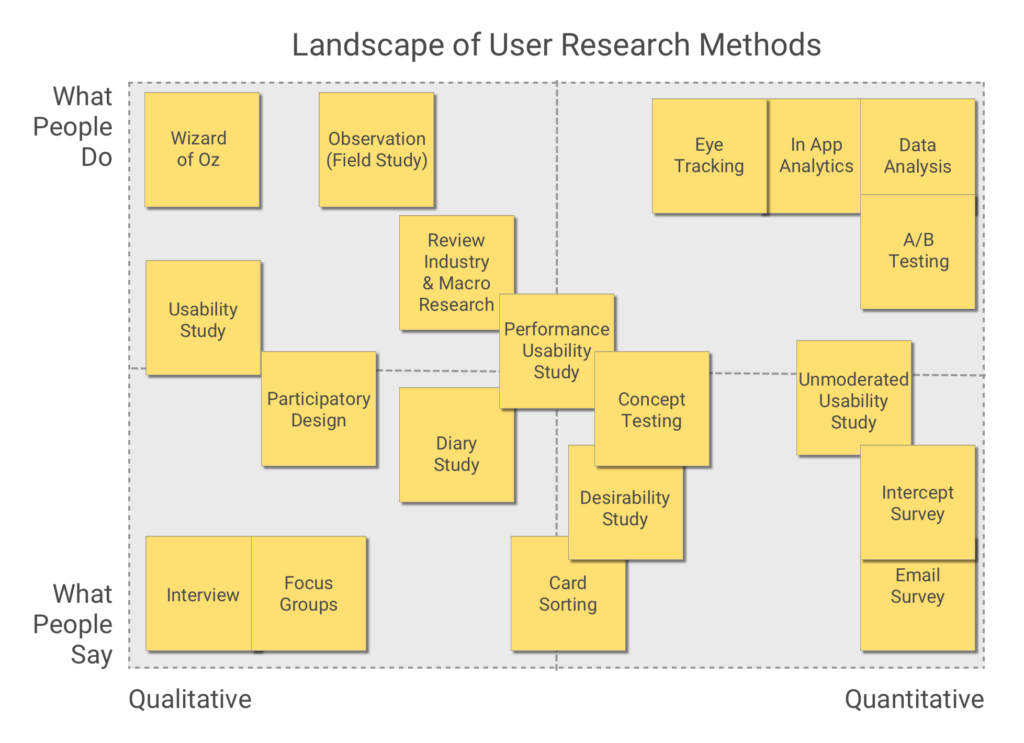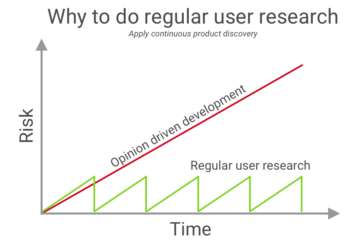What is Qualitative Research
Typically Qualitative Research uses questions such as “why?”, thus creating hypotheses.
The main objective is to gain a broad understanding of the underlying reasons and motivations behind consumer decisions. This is usually the first step of each research.
Sample size: small number of respondents
Qualitative Research uses unstructured methods of data collection.
Qualitative data analysis is non–statistical
The term qualitative research refers to the type of research that focuses on how individuals and groups see, understand and interpret the world.
What is Quantitative Research
Quantitative research responds to questions such as “how many?”, thus confirming or rejecting individual hypothesis.
The main objective is to quantify data and generalize results from a sample to an entire target group. Thereby confirms or refutes the hypothesis.
Sample size: large numbers of respondents
Quantitative Research uses structured methods of data collection.
Quantitative data analysis is statistical
Large numbers validate hypotheses.Quantitative research answers the question of “how much?” and also “how often?”. It tells us, whether our hypotheses are valid to all users, to some part of them, or to only a small number of users. This type of research can tell us whether we are on the right track.
Qualitative vs. Quantitative research
Each study should be a combination of these two methods, both complement each other. Qualitative and Quantitative methods do not compete.
Research methods

Quantitative & Qualitative Research Methods:
- Interview
- Usability Testing
- Wizard of Oz
- Focus Groups
- Participatory Design
- Observation (Field Study)
- Review Industry & Macro Research
- Diary Study
- Card Sorting
- Performance Usability Study
- Desirability Study
- Concept Testing
- Eye Tracking
- In App Analytics
- Unmoderated Usability Study
- Email Survey
- Intercept Survey
- A/B Testing
- Data Analysis
Quantitative Research Definition
Quantitative methods emphasize objective measurements and the statistical, mathematical, or numerical analysis of data collected through polls, questionnaires, and surveys, or by manipulating pre-existing statistical data using computational techniques. Quantitative research focuses on gathering numerical data and generalizing it across groups of people or to explain a particular phenomenon.
Babbie, Earl R. The Practice of Social Research. 12th ed. Belmont, CA: Wadsworth Cengage, 2010; Muijs, Daniel. Doing Quantitative Research in Education with SPSS. 2nd edition. London: SAGE Publications, 2010.
Qualitative Research Definition
The word qualitative implies an emphasis on the qualities of entities and on processes and meanings that are not experimentally examined or measured [if measured at all] in terms of quantity, amount, intensity, or frequency. Qualitative researchers stress the socially constructed nature of reality, the intimate relationship between the researcher and what is studied, and the situational constraints that shape inquiry. Such researchers emphasize the value-laden nature of inquiry. They seek answers to questions that stress how social experience is created and given meaning. In contrast, quantitative studies emphasize the measurement and analysis of causal relationships between variables, not processes. Qualitative forms of inquiry are considered by many social and behavioral scientists to be as much a perspective on how to approach investigating a research problem as it is a method.
Denzin, Norman. K. and Yvonna S. Lincoln. “Introduction: The Discipline and Practice of Qualitative Research.” In The Sage Handbook of Qualitative Research. Norman. K. Denzin and Yvonna S. Lincoln, eds. 3rd edition. (Thousand Oaks, CA: Sage, 2005), p. 10.


